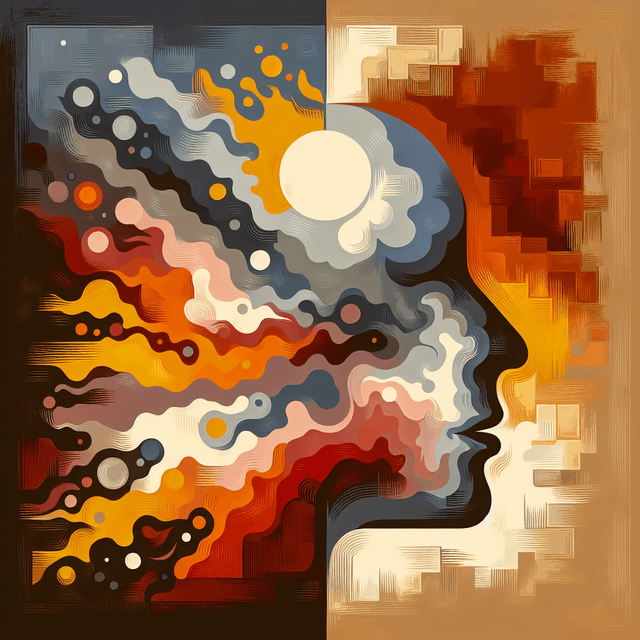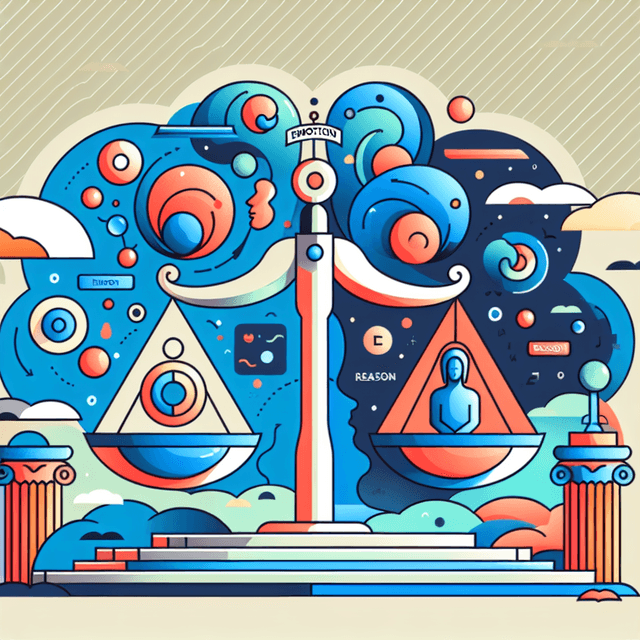Emotion Vs Reason In Stoic Ethics
27 December 2023
The Battle Within: Emotion Vs Reason
Stoic philosophy delves into the inner conflict between our emotions and our rational faculties. The Stoics posited that emotions often cloud our judgment and lead to irrational actions. By harnessing reason and logic, individuals can overcome the destructive influence of emotions and achieve a state of tranquility and wisdom. This understanding forms the cornerstone of Stoic ethics, emphasizing the need to cultivate rationality over emotional reactivity.
Virtue and Emotional Resilience
In Stoic ethics, virtue is synonymous with living in accordance with reason and wisdom. Emotions are seen as impediments to the development of virtue, as they often lead individuals astray from rational decision-making. However, the Stoics did not advocate for the suppression of emotions; rather, they encouraged the cultivation of emotional resilience. By deploying reason to navigate and understand their emotions, individuals can develop the strength to confront life's challenges with equanimity and fortitude.

Now that which Panaetius replied to the question about love may be applied, I believe, to all the emotions.
- Seneca
The Dichotomy of Control
Central to the Stoic approach is the dichotomy of control, which delineates between things within our control and those outside of it. Emotions are often triggered by external events, which fall outside the realm of our control. Stoic ethics advocate for directing our focus and efforts towards what we can control – our thoughts, judgments, and actions – rather than being swept away by external circumstances, which can elicit irrational emotional responses.
The Path to Eudaimonia
Eudaimonia, the ultimate goal of Stoic ethics, is achieved through the alignment of one's actions and judgments with reason and virtue. Embracing reason over emotion is seen as pivotal in this pursuit, as it leads to a life characterized by inner peace, moral integrity, and personal fulfillment. By understanding the interplay between emotion and reason, individuals can embark on a transformative journey towards eudaimonia.

The Modern Relevance
The conflict between emotion and reason remains a pertinent theme in the modern world, resonating with individuals navigating the complexities of contemporary life. Stoic ethics offer timeless insights into how we can strive to strike a balance between our emotions and rationality, fostering a deeper understanding of ourselves and our place in the world.
themes
Harmonizing Emotion and Reason
Ultimately, Stoic ethics call for the harmonization of emotion and reason, rather than the outright rejection of one in favor of the other. By acknowledging the power of emotions and harnessing the clarity of reason, individuals can cultivate a balanced and virtuous approach to life, enriching their experiences and relationships while aligning with the noble pursuit of eudaimonia.

Written by

Max writes is a online stoicism content writer. He is passionate about making stoicism accessible for everyone.